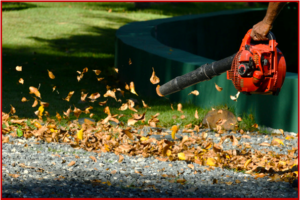
CARB testing showed several small off-road engine products, aka SORE (aptly named?), did not meet evaporative emission standards. These control the amount of raw fuel that can evaporate from these engines, typically used in lawn and garden equipment such as lawn mowers, leaf blowers and pressure washers.
The California Air Resources Board (CARB) said today it reached a settlement agreement with American Honda Motor Corporation of Torrance, California for $6.9 million for violations of CARB’s air quality regulations. This is the second enforcement action against Honda in the past two years*.
Small off-road engines are a major source of pollution in California. In California during 2021, these small engines surpassed light-duty passenger cars as a source of smog-forming emissions. This includes the emissions of raw fuel that continue to evaporate from these engines, lawn mowers and other equipment even when they are off. CARB will consider a regulation on 9 December 2021 to transition small off-road engines to zero-emission technologies, aka electric. This will help California “meet its required federal clean air standards, clean the air and significantly reduce harmful emissions for those who work all day with these small off-road engines.”
“The scope of this violation and impact to California’s air pollution challenge is significant – more than 150,000 small off-road engines used without proper certification that also failed to meet California’s evaporative emissions standards. The excess raw fuel from these engines goes directly into the air where it becomes a fundamental building block of ozone and smog. The case also underscores the need to transition to clean equipment that does not rely on burning fuel,” said CARB Executive Officer Richard W. Corey.
In addition to the penalty and as a condition of settlement, Honda is required to submit and implement a corporate compliance plan to fulfill all CARB regulations going forward. Honda will also forfeit ~80,000 banked emissions credits they have accumulated under the program as part of the settlement.
Honda cooperated with CARB to resolve all allegations of violating SORE and Evaporative Emissions Regulations. Honda’s settlement includes a $3.9 million civil penalty that will go to CARB’s Air Pollution Control Fund, which provides funding for projects and research to improve California’s air quality. The remaining $3 million will fund several Supplemental Environment Projects (SEP), including installation of air filtration systems in Oakland schools, an air quality education program for students in Contra Costa and San Diego counties, and an HVAC replacement project to improve the air quality and efficiency of air conditioning and filtration systems in West Fresno elementary schools.
*In 2019, CARB testing revealed several small off-road engine products, aka SORE (aptly named?), did not meet CARB evaporative emission standards. These standards control the amount of raw fuel that is allowed to evaporate from these engines, typically used in lawn and garden equipment such as lawn mowers and pressure washers. Honda’s engines failed to meet the 24-hour evaporative standards determined by testing engines while cycling from typical night-to-day temperatures found in California. Honda failed these tests demonstrating evaporative emissions of gasoline above the legal limit. Honda also failed to follow Small Off-Road Engine Evaporative Emission Control System Certification Procedures, said CARB. Previously, in April 2020, CARB settled with Honda for nearly $2 million for exceeding the certified evaporative model emission limit under the SORE regulations.


Pingback: CARB to Launch Small Fleet ZEV Conversion Incentives | AutoInformed
Pingback: CARB to Require Zero Emissions Off-Road Engines by 2024 | AutoInformed